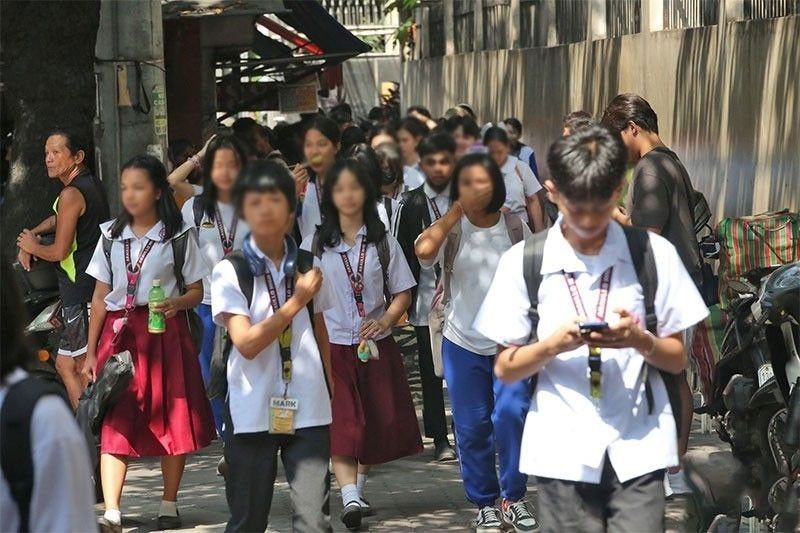Can cultural context of the Philippines suppress creative thinking?

Creative thinking is a complex process influenced by various factors, including cultural context. Culture shapes how individuals perceive, interpret, and respond to their environment which plays a crucial role in fostering or hindering creativity.
For its part, the Programme for International Student Assessment (PISA) defines creative thinking as “the competence to engage productively in the generation, evaluation, and improvement of ideas that can result in original and effective solutions, advancements in knowledge, and impactful expressions of imagination.” The recent PISA results, which showed low creative thinking among Filipino students, can be partly attributed to specific cultural characteristics inherent in Filipino society.
Historically speaking, the Filipino culture of today has been a blend of influences from both the west and the east. The most dominant cultural value among Filipinos is "Smooth Interpersonal Relationship" (SIR) which is primarily characterized by maintaining harmony among individuals, family members, and society in general.
This cultural value guides Filipinos in their daily lives and is characterized by four key Filipino values: (1) pakikisama (getting along with others); (2) hiya (sense of shame); (3) amor propio (self-esteem); and (4) utang na loob (debt of gratitude). Another essential aspect of the Filipino character is pakikipagkapwa-tao, or having a regard for the dignity and being of others, which is considered a major strength of the Filipino character.
These cultural values, however, while fostering strong interpersonal relationships and social harmony, may inadvertently suppress individual creative thinking. The emphasis on conformity, social harmony, and respect for others can limit individuals' willingness to challenge the status quo, take risks, and express unconventional ideas—all of which are crucial for creative thinking.
Therefore, while the cultural traits of SIR and pakikipagkapwa-tao strengthen social bonds, they may also contribute to the lower levels of creative thinking observed among Filipino students in the recent PISA results.
Cultural norms and values significantly impact creative thinking by defining what is considered acceptable and innovative within a society. Cultures that value individualism and self-expression, such as those in many Western countries, often encourage divergent thinking and the generation of novel ideas.
In contrast, collectivist cultures, prevalent in most Asian societies, may emphasize conformity and adherence to established norms, which can both constrain and channel creative expression in unique ways.
The emphasis on avoiding conflict and maintaining pleasant interactions can restrict students from freely expressing their unique perspectives or challenging existing ideas. This can create an environment where creativity is stifled, as students are less likely to share unconventional or groundbreaking thoughts.
Meanwhile, amor propio fosters a reluctance to engage in activities or propose ideas that may attract criticism or challenge societal norms. This fear of negative feedback can prevent individuals from exploring unconventional and potentially groundbreaking concepts, stifling creativity.
Furthermore, utang na loob encourages individuals to prioritize group harmony and loyalty over individual creativity and initiative. This emphasis on maintaining relationships and reciprocating support received can lead to conformity and reluctance to challenge existing norms or explore unconventional ideas.
While Filipino cultural norms and values like pakikisama, hiya, amor propio, utang na loob, and public politeness strengthen social harmony and respect, they can also suppress creative thinking by promoting conformity, discouraging risk-taking, and limiting open expression. These cultural traits contribute to the lower levels of creative thinking observed among Filipino students in the recent PISA results.
The cultural emphasis on public politeness can reinforce hierarchical structures within educational settings. Students may hesitate to challenge authority figures or propose unconventional ideas, fearing they might disrupt hierarchical harmony or be perceived as disrespectful.
Therefore, to address such case, there may be a need to revise educational strategies to balance the preservation of cultural values with the encouragement of creative thinking. Educators might need to develop approaches that respect cultural norms while fostering an environment where creativity and individual expression are encouraged.
The curriculum, especially at the basic education level, might need to incorporate activities and instructional methods that specifically target and mitigate the inhibiting effects of cultural norms on creativity. This could include problem-solving tasks, open-ended projects, and encouraging a classroom culture that values diverse viewpoints and innovative ideas.
Handling these cultural factors is crucial for the long-term development of innovation and competitiveness in the Philippines. By fostering a more creative and innovative youth, the country could enhance its position in the global economy.
So, the next time you see the Philippines in PISA and similar world rankings, keep in mind that there are a lot more factors in the mix with respect to how our Filipino students fare and perform in such world metrics and that there are far deeper influence ingrained not just on how we Filipinos creatively think but also on how we respond, interact, behave, and project ourselves collective and deeply as a nation.
Our rich but diverse history and culture has proven those defined characteristics – something that can never be exactly defined, measured, or ranked by any outsider trying to look in no matter how objective or scientific their tests are.
Allen A. Espinosa, PhD is a postdoctoral fellow at the Faculty of Education of Charles University in Prague, Czech Republic. He is currently on study leave as professor of Science Education at the Educational Policy Research and Development Office of the Philippine Normal University. E-mail: [email protected].
- Latest


























